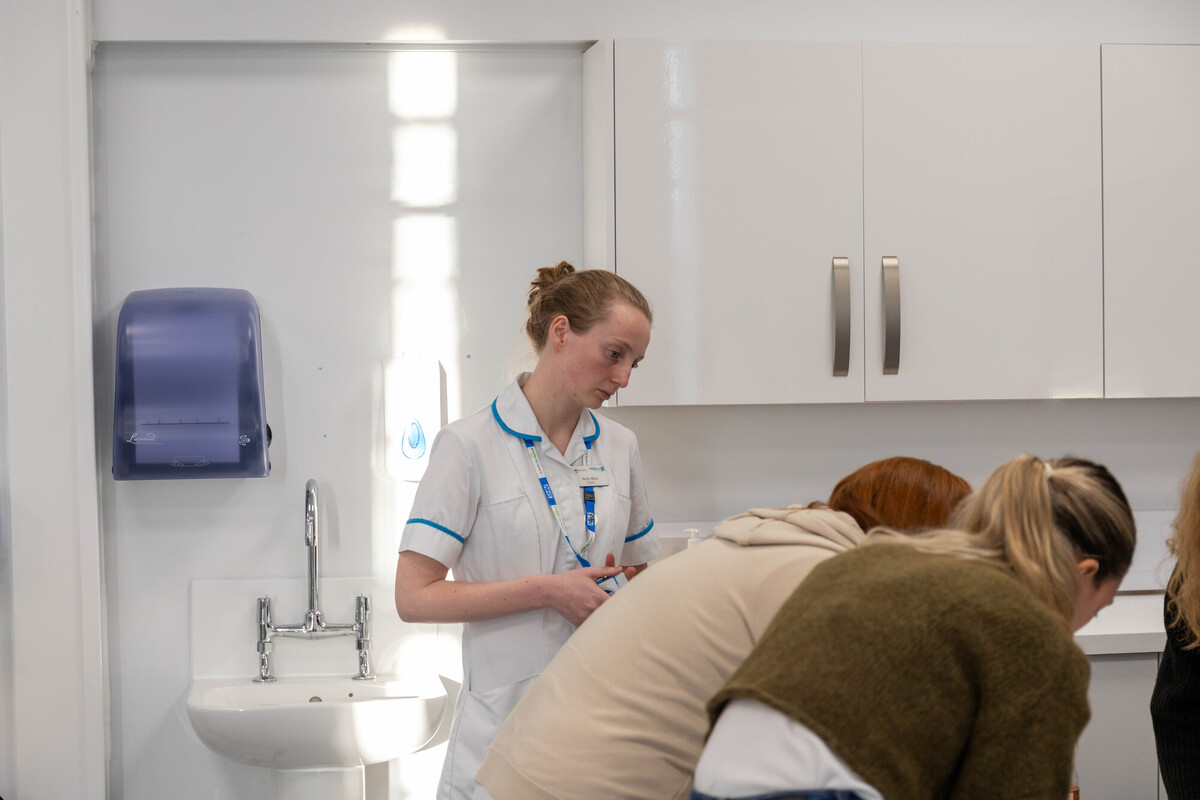Master of Public Health MPH

The Master of Public Health (MPH) course at the University of Chester is a comprehensive programme designed to equip you with the essential skills and knowledge you need to excel in the evolving field of public health, and to engage in the collaborative partnerships required to address determinants of health that transcend national boundaries. The course combines theoretical foundations with practical applications, covering key areas such as epidemiology, health policy, leadership, economics of health, and communicable disease control. It is aligned with both the UK Public Health Skills and Career Framework and the UK Public Health Skills and Knowledge Framework, ensuring that you will gain industry-relevant competencies.
Whether you are a medical professional, work in social or community sectors, or are seeking to pivot your career, the MPH at Chester provides the tools you need to advance professionally and make a meaningful impact. The programme features expert-led modules and is supported by high-profile guest speakers, providing opportunities for you to engage with leading professionals in the field.
Chester stands out for its robust teaching and learning support services, expert faculty, and strong emphasis on health protection, health promotion and disease prevention. The MPH course not only fosters critical thinking and leadership but also opens doors to a wide range of new career opportunities, so that you can become a public health leader on a local, national or global level.
Graduates from Chester's MPH course have secured diverse roles such as Situational Awareness Analyst at the UK Health Security Agency, Research Study Coordinator at Liverpool Heart and Chest Hospital, Dynamic Keyworker with the NHS Cheshire and Merseyside Integrated Care Board, Research Development Facilitator at University Hospitals Coventry and Warwickshire (UHCW) NHS Trust, and Assessment Reablement Officer with Wirral Council.

Pushpa’s Master of Public Health Experience
What You'll Study
The course is modular; six of your modules are worth 20 credits at Level 7, with your final research module worth 60 credits. You will have 200 hours of learning per module, which includes approximately 30 hours of direct contact. Your final module is 556 hours of learning, which includes 35 hours of direct contact. The areas of study will include contemporary public health issues and evidence-based public health, including concepts, principles and methods of evaluation.
The information listed in this section is an overview of the academic content of the course that will take the form of either core or option modules and should be used as a guide. We review the content of our courses regularly, making changes where necessary to improve your experience and graduate prospects. If during a review process, course content is significantly changed, we will contact you to notify you of these changes if you receive an offer from us.

How we teach at the University of Chester
The Master of Public Health course is delivered in person, primarily through seminars, lectures and workshops. You will experience an interactive and collaborative learning environment, often working alongside your peers and with staff to develop the key competencies.
A diverse range of teaching and learning modes are utilised for this course (e.g. lectures, seminars, group activities, case studies, student presentations). Independent learning following the taught element is a key feature of the course and is supported through individual tutorials (in person or online) and assessment workshops.
Teaching is delivered by experienced, well-published academics and practitioners in the subject. All of whom will offer you diverse perspectives and utilise a range of materials and teaching methods to ensure that your individual learning needs are catered for.
The range of assessment methods on the course represents different types of tasks that you are likely to encounter in the workplace. These include assessments in the form of written work (both long and short form e.g. reports, reflections), portfolios and presentations. Assessments on the course are also integrated into the learning process, enabling consistent application of knowledge to occur. Course staff continuously review the methods of assessment utilised within modules, guaranteeing authenticity and currency within the context of post-graduate level employment.
Your Future Career
Careers Service
The University has an award-winning Careers and Employability service which provides a variety of employability-enhancing experiences; through the curriculum, through employer contact, tailored group sessions, individual information, advice and guidance.
Careers and Employability aims to deliver a service which is inclusive, impartial, welcoming, informed and tailored to your personal goals and aspirations, to enable you to develop as an individual and contribute to the business and community in which you will live and work.
We are here to help you plan your future, make the most of your time at University and to enhance your employability. We provide access to part-time jobs, extra-curricular employability-enhancing workshops and offer practical one-to-one help with career planning, including help with CVs, applications and mock interviews. We also deliver group sessions on career planning within each course and we have a wide range of extensive information covering graduate jobs .
Entry Requirements
Normally, applicants should have an appropriate university degree or equivalent qualification. Alternatively, students with relevant experience may be able to apply through the Accreditation of Prior Experiential Learning (APEL) route.
Normally, applicants should have an appropriate university degree or equivalent qualification. Alternatively, students with relevant experience may be able to apply through the Accreditation of Prior Experiential Learning (APEL) route. Overseas applicants whose first language is not English will need to have a minimum IELTS score of 6.5 overall with no less than 5.5 in each band or equivalent English language qualifications
In order to be considered for admission, the following points MUST be addressed in the personal statement:
- Demonstrate relevance of Undergraduate degree to MPH
- Demonstrate public health career aspirations
- Demonstrate how previous studies prepare for Master of Public Health
English Language Requirements
For more information on our English Language requirements, please visit International Entry Requirements.
Fees and Funding
£9,090for a full-time course (2026/27)
Guides to the fees for students who wish to commence postgraduate courses are available to view on our Postgraduate Taught Programmes Fees page. Here you will also find information about part-time fees and project/placement year fees.
£15,500for a full-time course (2026/27)
The tuition fees for international students studying Postgraduate programmes in 2026/27 are £15,500.
Please note: For MSc programmes where a placement or project year is undertaken there will be an additional charge of £2,900 for the placement/project year (due at the start of the second year of the course).
The University of Chester offers generous international and merit-based scholarships for postgraduate study, providing a significant reduction to the published headline tuition fee. You will automatically be considered for these scholarships when your application is reviewed, and any award given will be stated on your offer letter.
For more information, go to our International Fees, Scholarship and Finance section.
Irish Nationals living in the UK or ROI are treated as Home students for Tuition Fee Purposes.
Your course will involve additional costs not covered by your tuition fees. This may include books, printing, photocopying, educational stationery and related materials, specialist clothing, travel to placements, optional field trips and software. Compulsory field trips are covered by your tuition fees.
The University of Chester supports fair access for students who may need additional support through a range of bursaries and scholarships.
Full details, as well as terms and conditions for all bursaries and scholarships can be found on the Fees and Finance section of our website.









